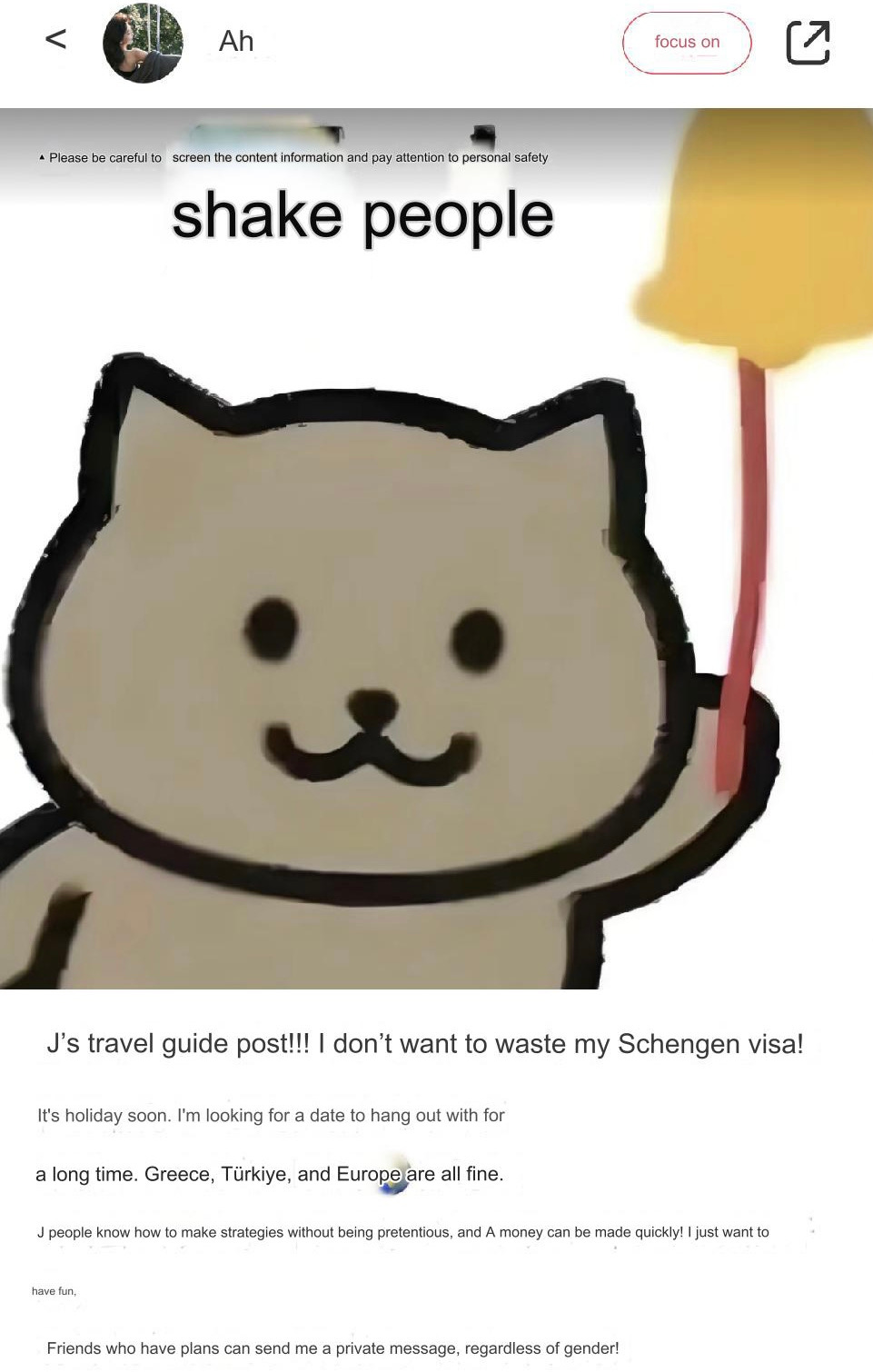What is it like to have disposable friendships?
"Mark Zuckerberg ruined the word 'friend,'" Sanchez-Burks bluntly declares. "It's just a button you click on a screen. What's the point?"
Reflecting on the past, those kindergarten friendships where you peed and played in the mud together, skipped school to chase girls, and then found yourselves as suited adults—always willing to be foolish together—seem like relics of a bygone era. The "old-school" friendships, built on a foundation of lifelong familiarity and trust, appear outdated in today's fast-paced world. Instead, forging friendships through virtual networks has become the new trajectory of companionship in the relentless march of modernity. In this seemingly interconnected world, people paradoxically find themselves lonelier than ever. A recent Meta-Gallup survey reveals that nearly a quarter of adults worldwide admit to feeling extremely lonely.
Facing this reality, Chinese youth combat loneliness by "finding dazi", initially rooted in the term "companion" as a "partner", originating from the colloquialism for "someone to play cards with". This concept evolved to encompass any activity shared with others, with strangers forming connections online based on commonalities or shared interests. These relationships are described as "lighter than friends, heavier than colleagues", as individuals "team up" to enjoy mutually satisfying and comfortable moments without intruding on each other's lives. This precise form of companionship is viewed as pressure-free social interaction, demanding no effort to maintain and allowing for greater autonomy and freedom of choice.
Through social platforms, young people can easily find dazi for a variety of activities—whether it's "meal dazi," "travel dazi," "exercise dazi," or even "strolling dazi," "shopping dazi," and "dieting dazi." Each specialises in providing tailored companionship within a specific vertical domain. Take, for instance, Cathy,a Chinese student studying abroad in Oxford, who embarked on a solo journey to London for a New Year's Eve clubbing during the Chinese New Year holiday this February. Amidst the pulsating beats, electrifying atmosphere, and festive vibes, Cathy was accompanied by Mira, a newfound dazi she connected with online just two days prior.
Despite being strangers, both heterosexual women, they shared a brief yet meaningful companionship on Chinese New Year's Eve. Reflecting on this fleeting bond, Cathy shared, "I didn't fancy hitting the London clubs solo. Asked my mates, but no one was up for a sleepover. So, I thought, why not find a dazi online?" Cathy chose to post on Little Red Book, a popular social media platform in China, to find a suitable dazi. Despite encountering scheduling conflicts with other potential dazi, luck favored her just two days before her departure as she stumbled upon Mira, who described herself as "a very spontaneous person, sometimes would like to meet some new people."
Dazi-style socialising epitomises a key aspect of contemporary youth interactions: shared company without intrusion. This sense of detachment, coupled with a light burden and shallow connection, makes it effortless for many to engage with dazi. "I feel like dazi is a bit like a one-night stand; there's no commitment involved," Cathy shared, explaining why she enjoys finding dazi. "We just have to enjoy ourselves on that day. Because there's no mutual acquaintances or financial exchanges between us, no work overlap, so we can be free to be ourselves, without any concerns."
What lies at the end of dazi? While the initial encounter may be fleeting, dazi can also blossom into enduring friendships. Take Mira, for example; her first foray into dazi was last year when she wished to explore the Natural History Museum in London. That initial dazi has since transformed into a close friend, with whom she now meets weekly. However, the more common outcome of dazi is a parting of ways as individuals move forward in their lives. In reality, since their club trip in February, Mira and Cathy haven't stayed in touch, despite both describing each other as "really nice." Nonetheless, even if it's disposable, it's perfectly fine. This unspoken recognition of boundaries is a fundamental aspect of dazi. The allure of dazi culture is found in acknowledging its superficial nature, eliminating the need for awkward pretenses of familiarity. Yet, it also presents opportunities for deeper connections and the potential to develop into close friendships or confidants.
In the age of social media, technology exacerbates the solitude experienced by young people. In the words of Sherry Turkle, "As we interact more with machines, our expectations of human interaction diminish." Tech giants like Tiktok, Baidu, and Xiaohongshu have capitalised on this trend by enhancing social interaction on their platforms, aiming to keep users engaged. The trend of "dazi socialising" originated from the Xiaohongshu platform. While users enjoy the precise matching facilitated by algorithm, it's essential to acknowledge the unique risks associated with online platforms. Generation Z safeguard themselves in various ways during online socialising. For instance, Mira mentioned she checks the dazi's profile beforehand to gain a general understanding before reaching out(also wore a hat and sunglasses to shield her personal information during the interview). As a photography enthusiast, Guan brings along a lightweight tripod (which he refers to as a "steel stick") as a makeshift weapon when traveling with dazi and keeps his money and bank cards stored separately.
In addition to the dangers of placing trust in strangers too readily, there's also concern: does this disposable friendship suggest a decline in emotional connections? Yet, having deep, intimate relationships doesn't contradict the idea of having multiple "dazi" in one's life. Compared to sticking solely with partners or friends, diverse and ever-evolving social networks can broaden people's perspectives and keep them open-minded. Dazi complement traditional, stable relationships. Perhaps a simple "seeking dazi" post might unexpectedly lead to finding like-minded buddies. With each new connection, we gain fresh insights into the world. Just like the sticky note on Cathy's desk advises: "Don't pressure friends into doing things they're not interested in; exploring new places with new friends!" And, of course, there's the sweet reminder from her "old friend" below: "Don't forget about old friends!"





